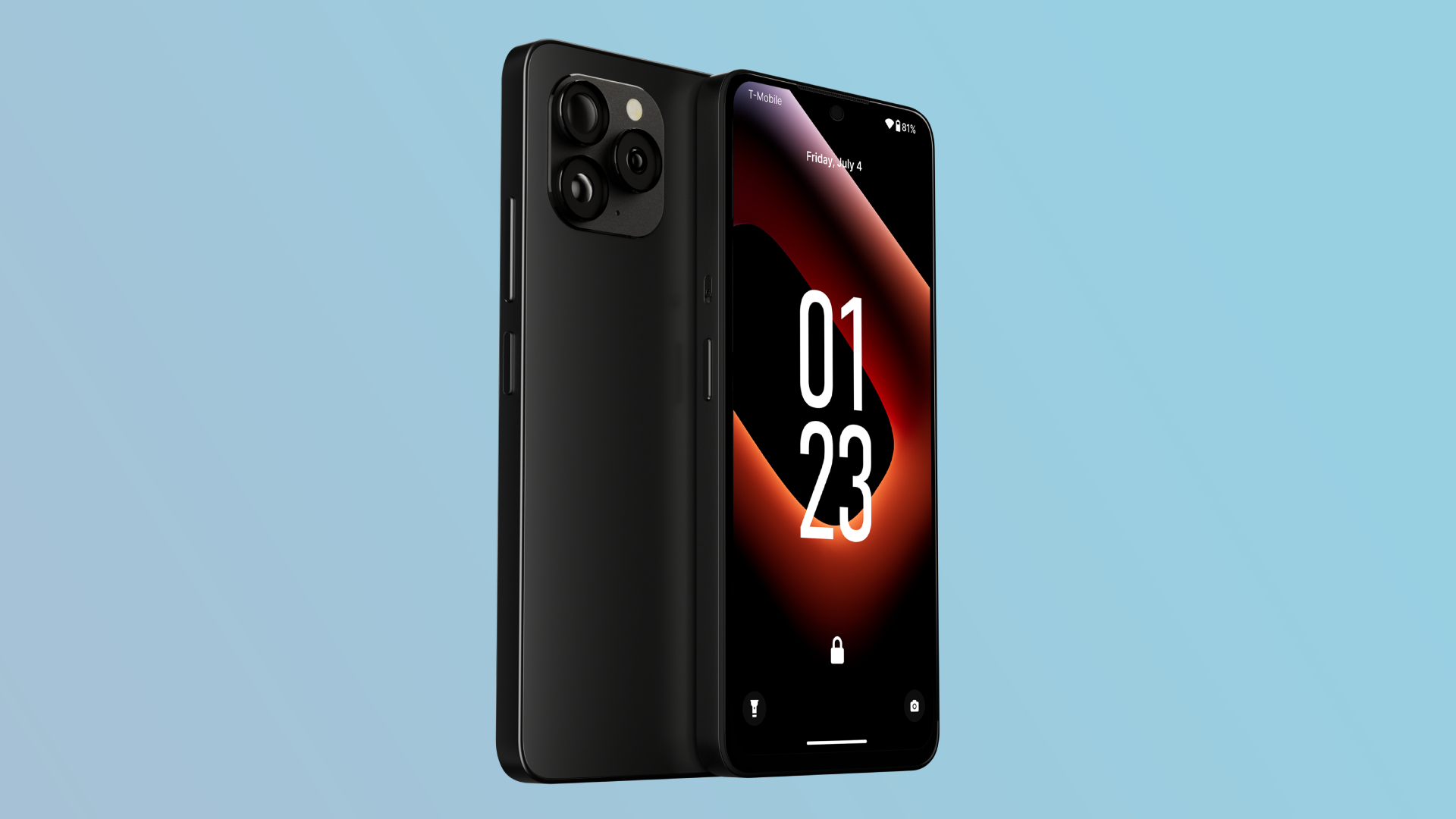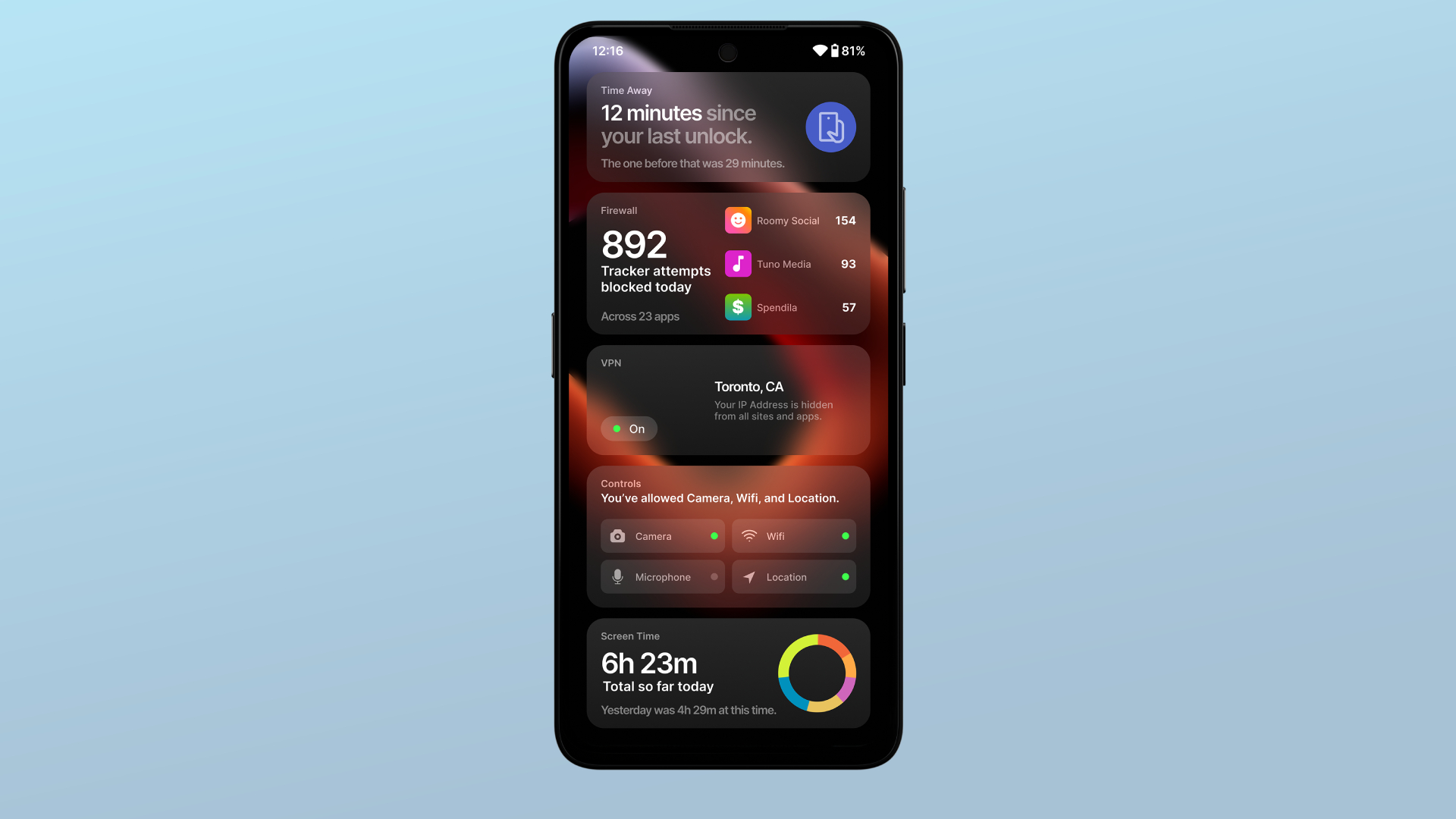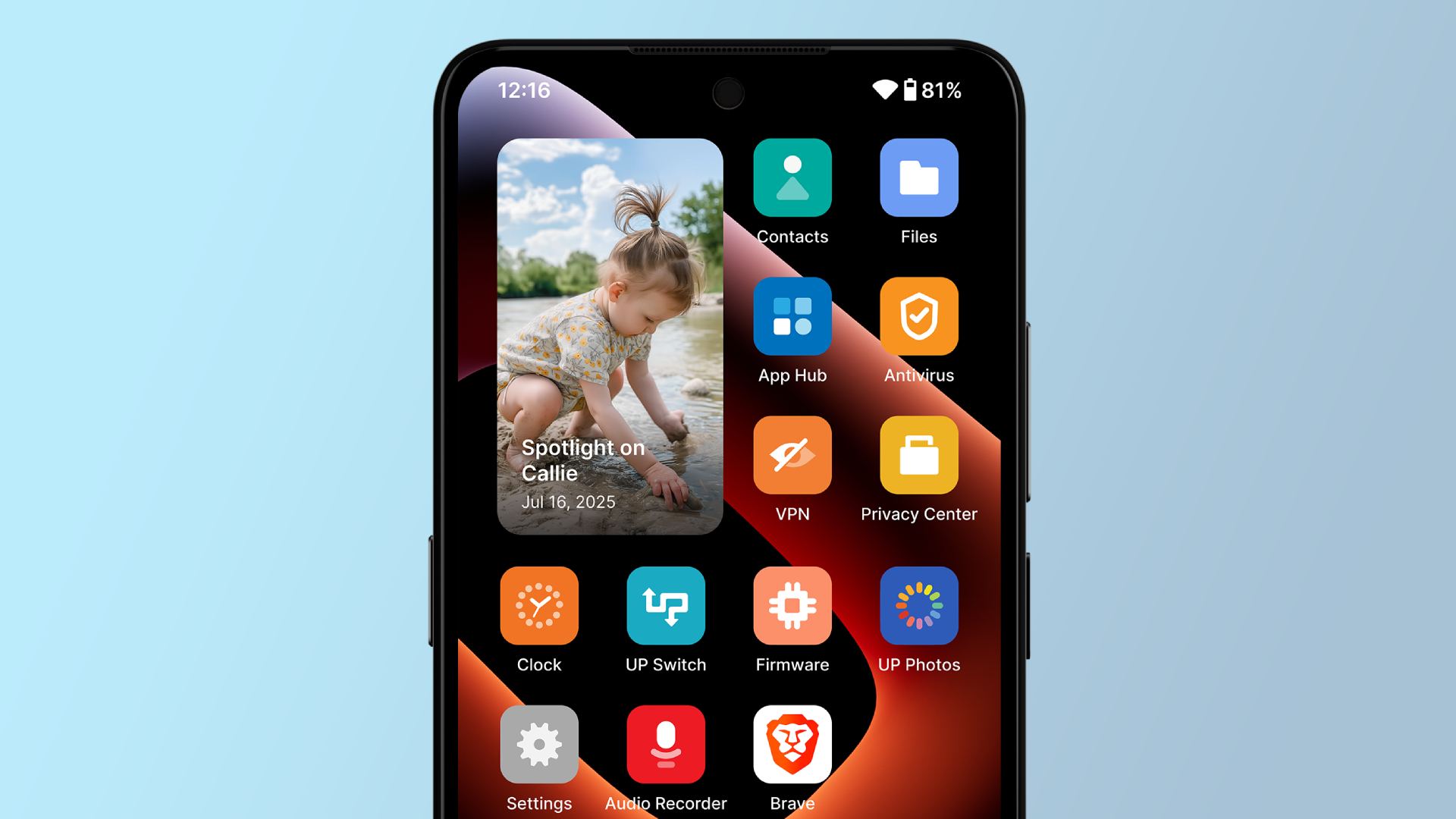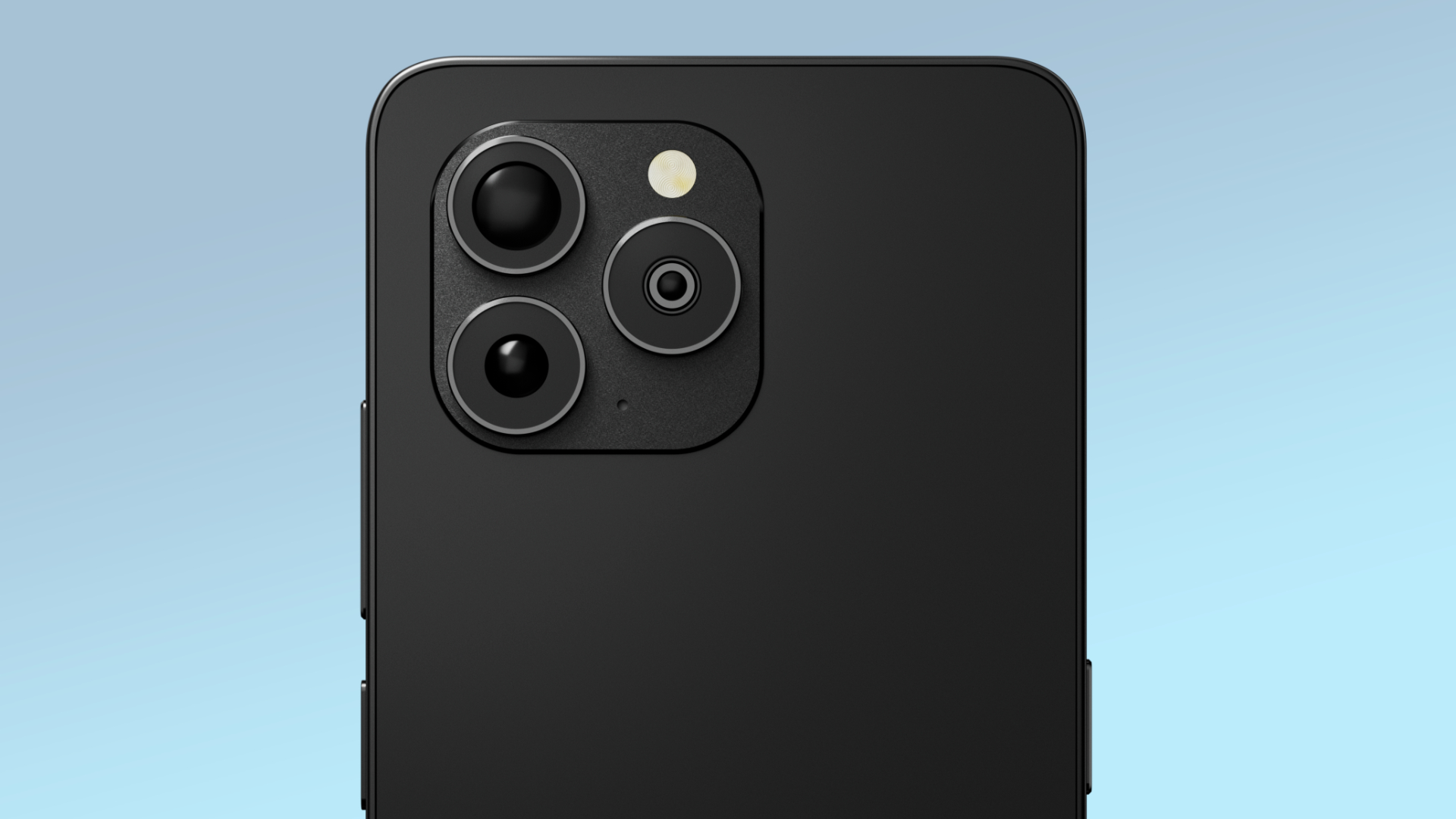Considering de-Googling? Unplugged just relaunched its privacy-first smartphone, and it earns "zero revenue from customer usage"
The phone maker's chief on relaunching its flagship

Sign up for breaking news, reviews, opinion, top tech deals, and more.
You are now subscribed
Your newsletter sign-up was successful
In the age social media, cookies, government surveillance, and digital footprints, it’s easy to just accept a loss of privacy as part and parcel of existing online – it seems you can’t even set up a new smartphone without accepting some level of data sharing, unless you want to miss out on essential and useful features.
US-based phone maker Unplugged wants to change that – the company has relaunched the UP Phone, its flagship (and only) model, built from the ground up to offer as much privacy as possible in its hardware and software.
To begin with, UP Phone runs on UnpluggedOS, derived from the Android Open Source Project, but does not come with Google Mobile Services. This means the phone shares no data with Google as standard, but misses out on some popular apps like Google Maps.

The phone is, however, extremely resilient against data requests from third parties – Unplugged shared that an independent test found that in a 45-minute testing period, the UP phone sent and received no data packets to trackers, while a Samsung Galaxy S25 logged more than 170,000 exchanges and an iPhone 16 Pro more than 210,000.
As for hardware, the UP Phone comes equipped with the MediaTek 1200 chipset – a 2021 chipset that's now far from flagship grade – and 8GB of RAM, as well as a 4,300mAh battery. The phone sports a triple-camera system made up of a 108-megapixel main camera, as well as 8MP ultra-wide and 5MP macro cameras, 256GB of storage expandable up to 1TB, and a 6.67-inch AMOLED display of unlisted resolution.
With specs like these, we’d typically expect the UP phone to cost around $450 / £450 / AU$850. Its actual retail cost? $989 (it's only priced in US dollars). That's around the price of some of the best phones on the market, like the iPhone 16 Pro, Samsung Galaxy S25 Plus , or Google Pixel 9 Pro.
Launching a phone with midrange specs and a flagship price tag is certainly an interesting gambit – but the Unplugged phone’s loadout of privacy focused apps and features is rare to see in today’s phone market.
Sign up for breaking news, reviews, opinion, top tech deals, and more.
I spoke with Unplugged CEO Joe Weil to find out more about how the UP phone was made and how the company hopes to challenge the status quo set by Apple and Google.
Unplugged UP Phone – the de-googler’s choice?

“As our lives move online, ad-driven smartphones fuelled by AI are harvesting unprecedented amounts of personal data, demanding our constant attention, and eroding our privacy,” Weil tells me. “That’s why Unplugged exists: to put people back in control of their digital lives, and to offer a true alternative to Big Tech smartphones—one that restores privacy, choice, and trust.”
Weil highlights three main technologies intended to put the UP phone ahead of competitors when it comes to privacy – the aforementioned control on data transfer, an “off means off” approach to shutting down your phone that means it emits and receives no data or signals, and secure data deletion, which means your phone can be wiped remotely or even after a pre-set period of time.
Continuing, Weil elucidates that Unplugged’s focus on privacy is grounded in real-world concerns: “We have all seen ads that feel a little too personal and it makes us wonder, “is my phone listening to me?” The truth is that no, the phones—and the apps on them—aren’t listening. They don’t need to. They already know everything about us.”
“The amount of ads we see online—and the personal nature of many of them—belies a deeper problem: our location, our relationships, and even our most personal preferences are monitored, recorded, and organized by data harvesters and brokers.”
As well as the features mentioned above, Weil points to “encrypted cloud storage”, a “built-in no-logs VPN”, and “an Android operating system that is completely de-Googled” as further privacy highlights – referring to the recent trend which sees tech users try to remove Google's presence from their lives altogether.
Whether this package adds up to $989 of value is another question.
Price vs privacy

There’s no disputing that the UP Phone has been designed to tackle these issues, but middling specs and a high price tag are sure to cast a long shadow in the mind of some consumers. Weil also didn’t confirm the length of support for the phone, meaning there’s no guarantee that updates will keep coming as the years go on (RCS messaging support is on the way “later this year” though).
For Weil, the privacy the UP Phone offers is its value for money: “Other companies offer extra bells and whistles, but they sacrifice the one thing that is the most valuable to many people: true privacy protection. It’s also important to note that Apple and Google Android smartphones are subsidized by the monetization of their customers' data.”
Weil continues: “Unplugged takes a fundamentally different approach: a smartphone should belong to the person who buys it. Unlike other companies, we earn zero revenue from customer usage.”
But while the phone itself may “belong” to the user, Unplugged still charges a subscription for some features: “We generate revenue by selling two products: Our hardware and its accessories, and a software subscription for services including VPN, Firewall, Encrypted Cloud Storage, and Private Messaging Service.”
What do you think? Is having control of your personal data worth paying flagship prices for? Or is the UP Phone too expensive for what it offers? Let us know in the comments below.
You might also like
- The Google Pixel 9 Pro was our Phone of the Year in 2024, but I can't see the Pixel 10 Pro repeating the feat in 2025 – here’s why
- iOS 26 beta 6 brings more surprise upgrades to your iPhone – and I'm already using my favorite one
- There’s only one way folding phones can get thinner, but I don’t think it’s time to ditch USB-C ports yet

Jamie is a Mobile Computing Staff Writer for TechRadar, responsible for covering phones and tablets. A lifelong tech-obsessive, Jamie began his writing career as a music blogger before studying journalism at Goldsmiths College, and joined TechRadar in 2024. He thinks the iPhone 5S is the greatest phone of all time, but is currently an Android user.
As well as reporting on the latest in mobile hardware, software, and industry developments, Jamie specialises in features and long-form pieces that dive into the latest phone and tablet trends. He can also be found writing for the site's Audio and Streaming sections from time to time, or behind the decks as a DJ at local venues around London.
You must confirm your public display name before commenting
Please logout and then login again, you will then be prompted to enter your display name.